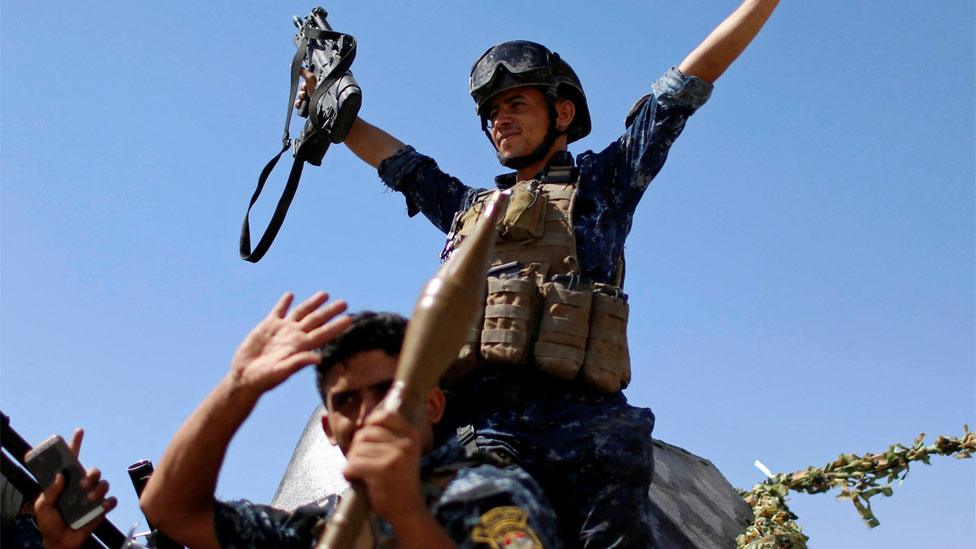IS conflict: Iraq launches ground offensive in Tal Afar
- Published
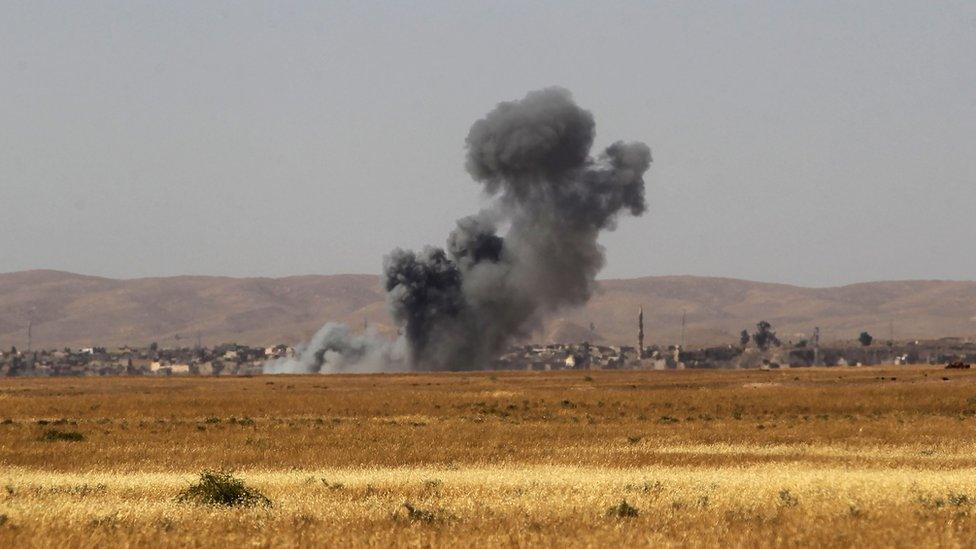
Explosions could be seen as Iraqi forces advanced on the outskirts of the city
Iraqi ground forces have begun an operation to retake Tal Afar, one of the last cities in the country held by the Islamic State group, officials say.
Several areas around Tal Afar were retaken on the first day of the offensive, Iraqia News TV reported.
In a televised speech, Prime Minister Haider al-Abadi said the jihadists had the choice between "surrender or die".
The army targeted Tal Afar after seizing Mosul, IS's main stronghold 55km (35 miles) to the east, in July.
Tal Afar, which had a predominantly ethnic Turkmen population of 200,000 before it fell to IS in 2014, sits on a major road between Mosul and the Syrian border that was once a key supply route for the jihadist group.
Anti-IS coalition forces estimate that between 50,000 and 100,000 civilians remain in and around the city.
The US-led coalition said its aircraft carried out dozens of strikes on the outskirts of Tal Afar on Sunday in support of advancing troops.
Officials said only a portion were planned in advance, and the rest were against IS fighters who emerged as the fighting intensified.
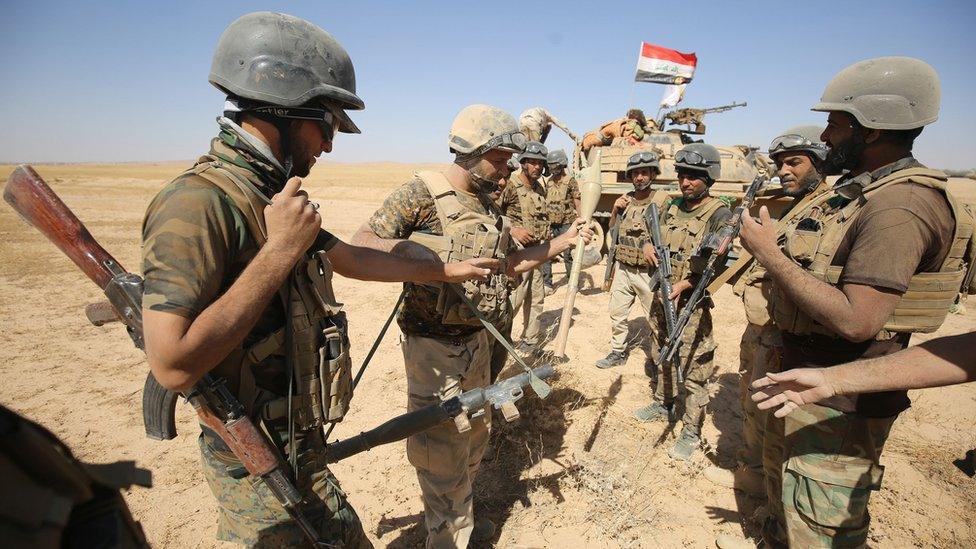
Shia militia are fighting alongside Iraqi government troops in the operation
IS, in a statement via its Amaq news agency, said it had destroyed several vehicles belonging to Shia militia groups to the east and west of Tal Afar.
Warplanes have been bombarding IS positions in the city for several days in preparation for ground operations.
On Sunday Mr Abadi, dressed in a black military uniform and standing in front of an Iraqi flag and a map of the country, announced the "start of an operation to free Tal Afar".
"I am saying to Daesh [Islamic State] that there is no choice other than to surrender or die," he said.
He finished his speech with an address to Iraqi troops: "The whole world is with you."
US Army Lt Gen Stephen Townsend, the commander of US and coalition forces in Iraq and Syria, hailed the new offensive.
He said: "The Iraqi Security Forces' operation to liberate Tal Afar is another important fight that must be won to ensure the country and its citizens are finally free of IS.
"The coalition is strong, and fully committed to supporting our Iraqi partners until IS is defeated and the Iraqi people are free."

Hours before Mr Abadi's statement, the Iraqi air force dropped leaflets over the city warning people to "prepare" for the latest assault.
"The battle is imminent and the victory is coming, God willing," the leaflets read.
Tal Afar is surrounded by government troops and Shia militiamen in the south, and Kurdish Peshmerga fighters in the north.
The Iraqi Shia militiamen did not play a big part in retaking Mosul, a mainly Sunni city, but are far more active in Tal Afar.
Last month, a senior Iraqi commander who once served as mayor of Tal Afar said there were between 1,500 and 2,000 militants and their family members left in the city.
Maj-Gen Najm al-Jabouri told, external Reuters news agency the jihadists were "worn out and demoralised" and that he did not expect a fierce battle for the town like the one for Mosul, which lasted almost nine months and took a heavy toll on Iraqi forces.
He also noted that only one part of the town had narrow streets comparable to those in Mosul's Old City.
Beside Tal Afar, IS controls territory around Hawija, 170km (105 miles) to the south-east; and from Ana to Al-Qaim in the Euphrates river valley, 220km to the south.
- Published17 October 2017
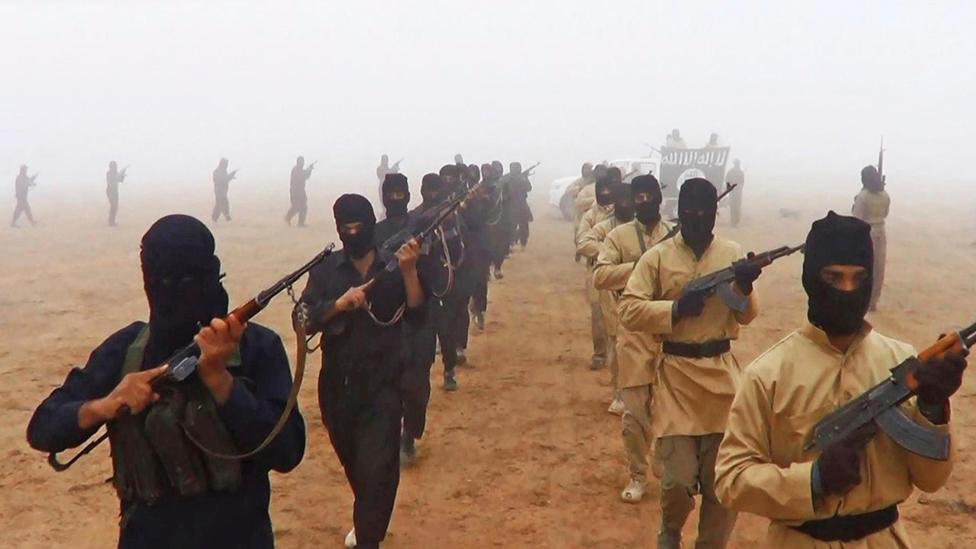
- Published10 July 2017
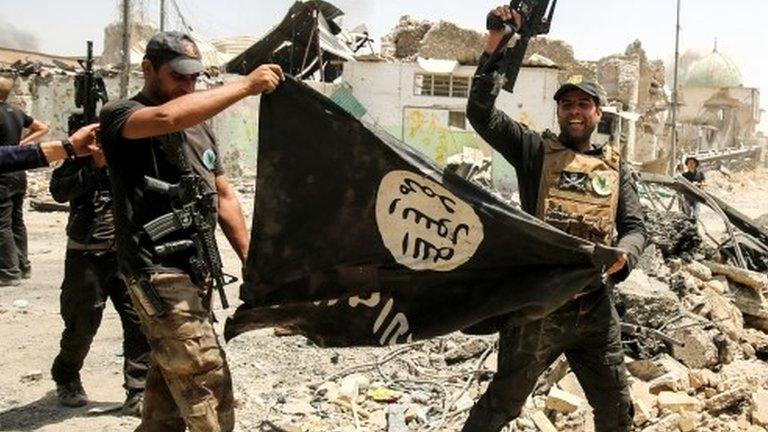
- Published22 June 2017
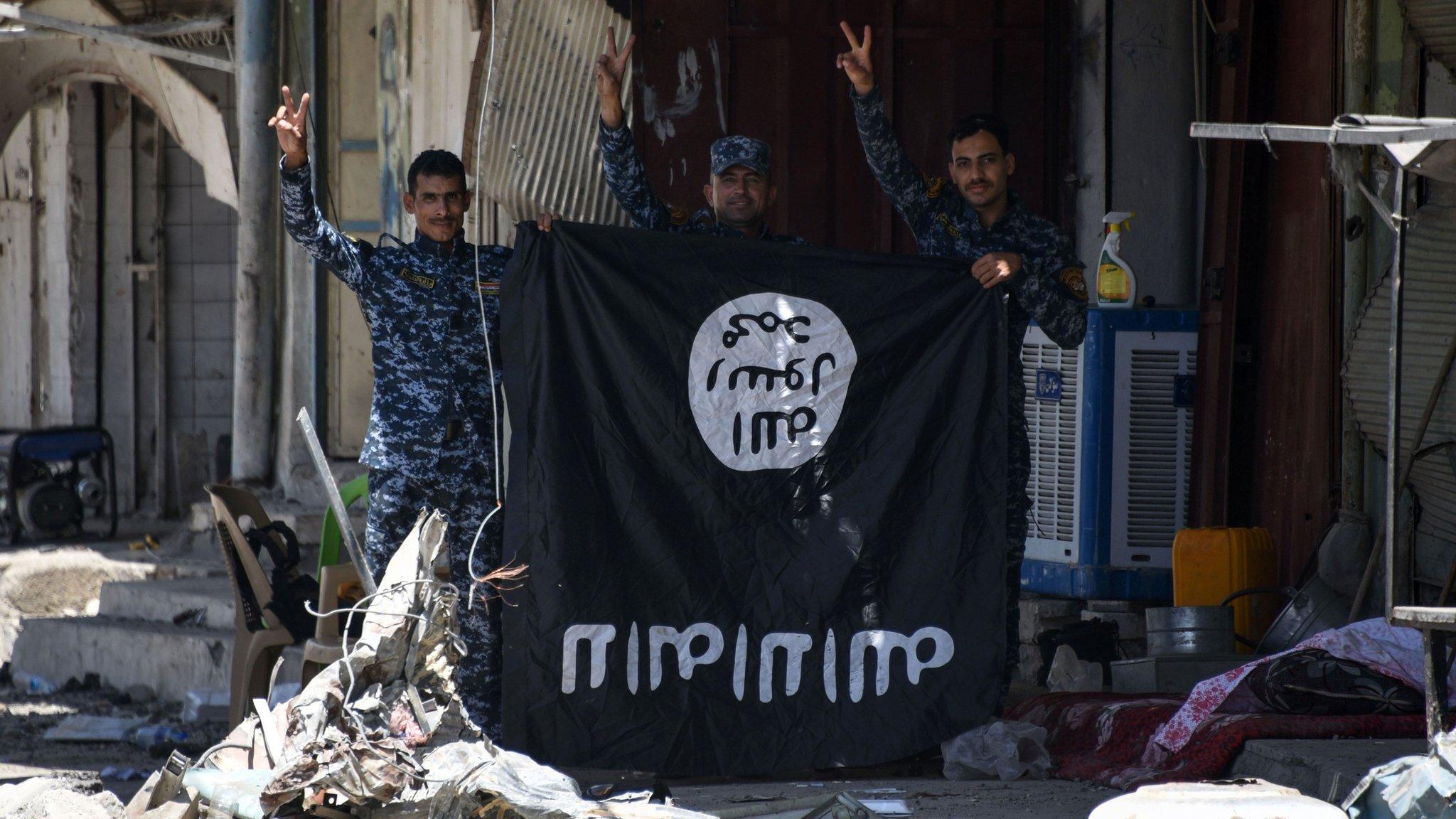
- Published29 June 2017
